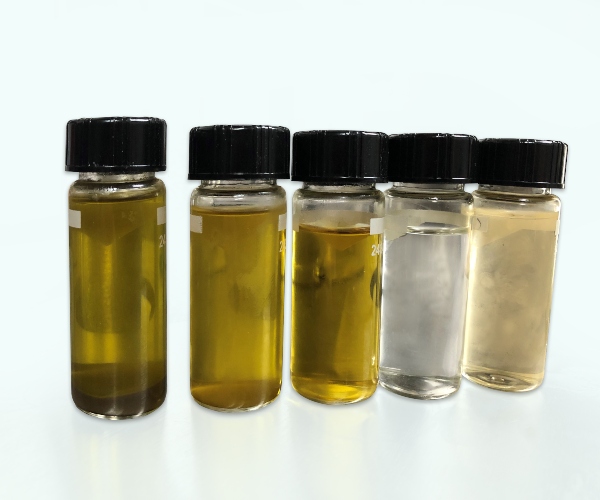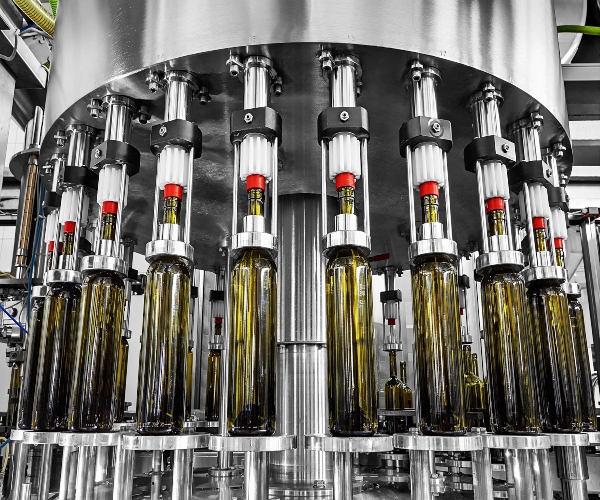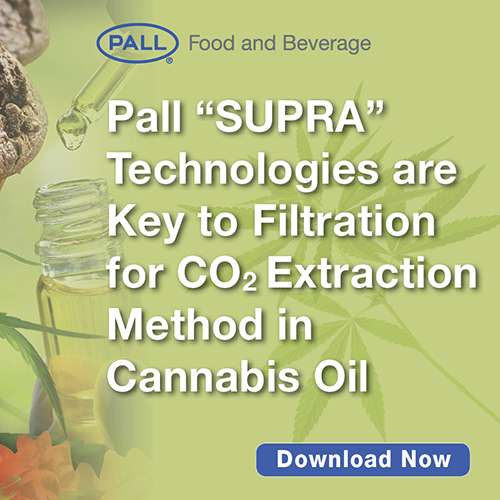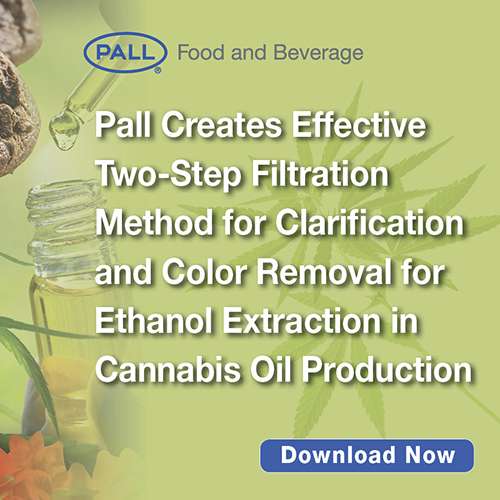À medida em que as demandas por produtos contendo óleo de cannabis continuam a crescer, padrões de controle de qualidade exigentes estão se tornando cada vez mais importantes para os consumidores. Combinado com investimentos no desenvolvimento de novos produtos e novas empresas entrando no mercado, a produção de um produto excepcional é chave para permanecer competitivo.
Principais desafios na produção e fabricação de óleo de cannabis
Os processos de fabricação precisam ser eficientes para lotes pequenos e necessidade grande de produto, ao mesmo tempo em que mantém perdas de produto ao mínimo.
Maximizando a produção
Focando na qualidade e na consistência
Superando limitações tecnológicas
Implementando processos e sistemas simplificados
Garantindo produção eficiente e melhorando a qualidade do produto
Encontrando soluções de processamento e produção econômicas para agilizar a extração
Problemas adicionais surgem ao garantir a comercialização e a qualidade. Um Processo de Boas Práticas de Fabricação (GMP) assegurará que seus produtos sejam consistentemente controlados e fabricados com a mais alta qualidade. Exigido por governos locais, o GMP é um conjunto de padrões para garantir produtos seguros e eficazes para distribuição. Processos como identificação, separação, extração e filtração precisam ser cuidadosamente selecionados e gerenciados de acordo com o Processo de Boas Práticas de Fabricação.
Etapas para filtração e extração do óleo de cannabis
Por mais de 70 anos, oferecemos soluções de filtração excepcionais para os setores de alimentos e bebidas, com o nosso portfólio de produtos em conformidade para contato com alimentos. Nossa experiência nos permite oferecer um portfólio completo de soluções e expertise para atender às suas necessidades de filtração de óleo de cannabis.
Clarificação
Uma vez que espera-se que produtos contendo diversos tipos de óleo de cannabis aumentem em popularidade, laboratórios que processam extração em pequena escala não são equipados para atender à demanda do produto. A remoção de carboidratos, gorduras, ceras, proteínas e clorofila ao refinar o óleo tem sido tradicionalmente realizada utilizando métodos de filtração como funis de Buchner, filtros bag e folhas planas. Os desafios que surgem desses métodos são:
Produção de lotes pequenos (20L) e não escalonáveis
Grandes gargalos de uma etapa para outra, como trocas de frascos, etanol ou de papel do filtro
Possível risco de contaminação em processamento aberto
Impossibilidade de integrar-se aos processos em linha com linhas produção ou de embalagem
Rendimento baixo resultante de perda por gotejamento
Vazões lentas, resultando em um aumento da temperatura, exigindo diversas passagens na filtração
Instalação e montagem exigindo mão de obra intensa
Para atender às exigências de extração e superar as armadilhas dos métodos tradicionais, a Pall trabalhou com produtores de óleo de cannabis em uma solução inovadora usando a tecnologia SUPRA. Saiba mais sobre a clarificação do óleo de cannabis.
Remoção de cor
Remoção de cor resultante da clorofila com a preservação dos canabinoides restantes é um desafio. Tradicionalmente, esse processo inclui adicionar carvão ativado para extrair e, em seguida, filtrar manualmente por meio de um filtro grosso. Existem diferentes métodos disponíveis para o tratamento com carvão ativado, incluindo a adição manual de pó ou grânulos de carvão e colunas de carvão. Embora a adição manual de carvão seja barata e eficiente, ela tem suas desvantagens. Além de exigir atenção especial quanto à saúde e à segurança dos operadores, o processo de adição manual de carvão pode ser trabalhoso e sujo.
As colunas de carvão, embora mais fáceis de usar, frequentemente derramam carvão a jusante. Isso pode ser resolvido com duas opções: recirculação através da unidade de filtro e a tecnologia de filtros de captura com carvão, instalados diretamente após o filtro de carvão. Nossos módulos de filtro SUPRAdisc™ de carbono impregnado e módulos de filtro SUPRAdisc™ AKS Series são uma solução eficiente para esses problemas.
Saiba mais sobre as nossas soluções para remoção da cor do óleo de cannabis
Filtração de ar estéril para embalagens
Assim como ocorre com outros mercados de Alimentos e Bebidas, o processamento downstream é uma etapa essencial para empresas usando óleo de cannabis em seus produtos finais. Os regulamentos estão se tornando mais exigentes para produtos contendo óleo de cannabis e é impressindível que os produtos finais sejam totalmente seguros para consumo. Um desafio enfrentado durante as etapas de processamento e embalagem da produção é proteger o produto final de bactérias. Uma das maneiras comprovadas de produzir produtos livres de bactérias é usar ar estéril.
Soluções da Pall Laboratory para preparação de amostra de cannabis
Para testes de controle de qualidade de canabis, acesse aqui.
A Pall Corporation não apoia, encoraja, nem promove a utilização de seus produtos ou serviços para quaisquer fins relacionados ao uso, cultivo ou comercialização ilegais de cannabis ou de produtos de cannabis. Os produtos da Pall destinam-se ao uso para finalidades relacionadas à cannabis somente em conformidade com todas as leis aplicáveis, de modo a promover a segurança pública e/ou em conexão com qualquer atividade científica ou de pesquisa aprovada e legal.

Clarificação do óleo de cannabis

Remoção da cor do óleo de cannabis







